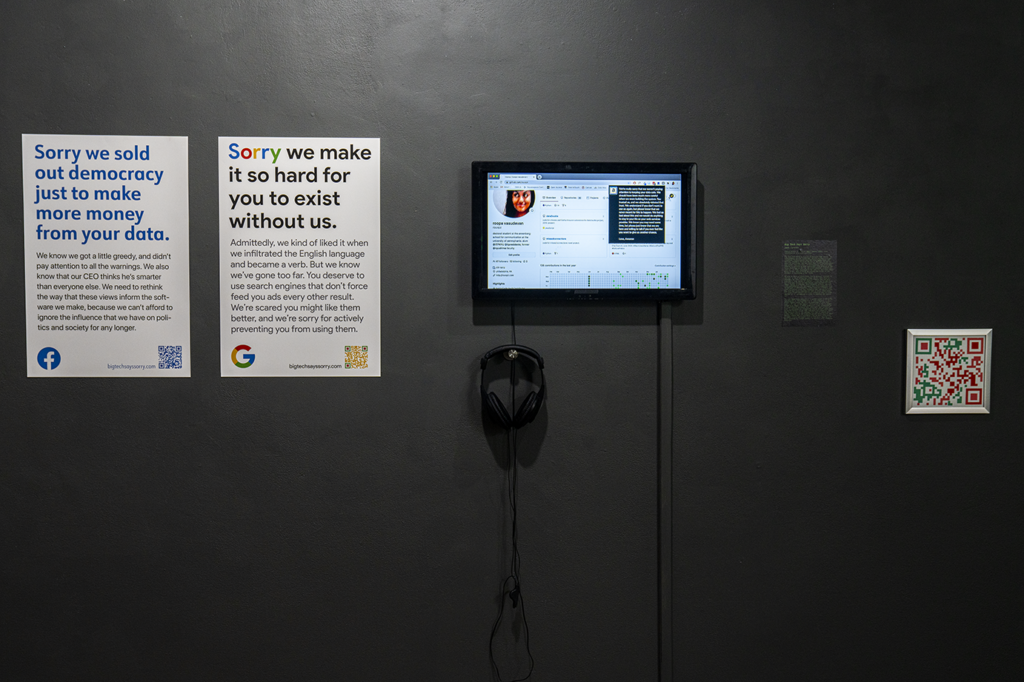Solidarity, Reciprocity, Distribution
Solidarity, Reciprocity, Distribution
In many ways, our dominant conception of technology rests on the myth of the genius entrepreneur. We believe that the singular vision of this brilliant mind leads directly to riches and success. And rather than assuming that this wealth will be redistributed and used to lift others up, we accept its being hoarded and hope that, one day, we will get to the point where we can have wealth to hoard, too. But we have also seen how that model fails, in the form of very public cautionary tales of companies like Theranos and Uber, where a single person’s ego provides both the charisma that leads to wild success, along with the hubris and inflexibility that lead to downfall. In spaces such as these, there is no room for contradiction, dialogue, or simultaneous truths—only a single path forward, constructed by those who want us to believe that they know more and better than we do.
What would technology look like if we trusted, embraced, and centered multiplicity, rather than singularity?
As much as we romanticize the genius entrepreneur or the lone hacker, the reality is that we do not build technology alone. Technological systems are inherently collaborative, spanning many different practices and involving many different stakeholders. We all have knowledge to contribute and we all have knowledge to gain. What would technology look like if we trusted, embraced, and centered multiplicity, rather than singularity? What if we made decisions in ways that considered complexity and equal exchange among the huge network of people making the machine run?
When it comes to thinking about what makes for “just tech,” I cannot help but turn to my experiences in collective spaces and communities as a starting point. I have spent the bulk of my artistic career working within do-it-yourself (DIY) and collectively-run creative spaces: intentional communities where open communication and transparency are prized above all else, and where most decisions are made by a group of people invested in the well-being of the organization. Consensus decisions must contend with a variety of perspectives and opinions that may not always align. The friction and conflict that comes with navigating varying perspectives and beliefs can be emotionally charged in the moment, but they often lead to more well-considered, nuanced, and heterogeneous decisions that ultimately work for everyone, not just specific people in the group.
These spaces offer possibility in their messiness and contradictions. When multiple people have an investment in the health of an organization, the differing stakes for all parties involved make themselves apparent in myriad ways—from determining which public programming to support for the upcoming season, to crafting forward-facing language that outlines the values and ethics of the space. The character, ethos and commitments of these spaces also depend, in large part, on the people who make them up—which, in the case of collectives that rotate membership on a regular basis, means that there exists exciting potential for reimagination and evolution in every new iteration of the group. Shared commitment to the good of something larger than one’s own self means that everyone pitches in, does their part, and leverages their skills to serve the whole, while simultaneously reaping benefits from their participation.

The ethos of these spaces also, in my view, reflects utopian ideals that underpin much of the open-source movement in technology: open access to software for modification, redistribution, and exchange. The code is there for the taking, yes; but, ideally, you are moved to give something back as well, to consider the health of the ecosystem above personal gain. In their best forms, these communities embody a commitment to collaboration—as well as to reciprocity.
Just technological spaces allow room for critique. Rather than swallowing critique into the system, or, as scholars like Safiya Noble and Ruha Benjamin have argued, treating critiques as “bugs” or “aberrations,” they engage in active dialogue with those doing the critiquing. They do not rely on the immediate past to construct their identities, but instead, as Kara Keeling posits, make room for constant reimaginings of themselves and what they might become. They welcome communication and transparency with open arms, genuinely want to be called in to make themselves better, and assume by default that they do not have all the answers (and, in fact, know that this is an impossible proposition).
The open-source model offers a way to envision what our technological future would look like if we placed solidarity over individuality.
I insist on seeing the promise of solidarity and abundance within the open-source model, which, in its idealized form, operates on a foundation of access, communication, and sharing. I find inspiration in projects like Processing—a creative code toolkit which just celebrated its twentieth year, and a thriving ecosystem of practitioners, developers, educators, and community builders all dedicated to the idea of making software, and the ability to create it, more accessible to everyone, not just a select few with the right training. I find it in technologically-enabled activist groups and educational resources like W.A.G.E. and Art.Coop, which have sprung up in response to unfair and precarious labor conditions for artists and arts workers. I find it in the efforts of the Tech Workers Coalition and the unionization drives gaining momentum at museums and tech companies alike, which insist on placing ethics, fairness and goodwill above profit and exploitation. These communities, and so many others like them, offer a way to envision what our technological future would look like if we placed solidarity over individuality—if we insist that those around us are able to thrive in the present and create their own futures.
